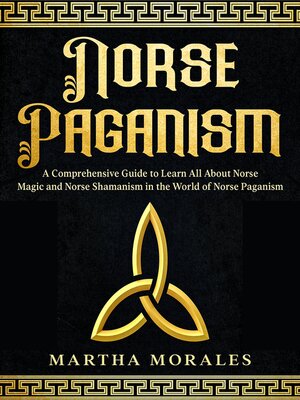Norse Paganism
audiobook (Unabridged) ∣ A Comprehensive Guide to Learn All About Norse Magic and Norse Shamanism in the World of Norse Paganism
By Martha Morales

Sign up to save your library
With an OverDrive account, you can save your favorite libraries for at-a-glance information about availability. Find out more about OverDrive accounts.
Find this title in Libby, the library reading app by OverDrive.



Search for a digital library with this title
Title found at these libraries:
| Library Name | Distance |
|---|---|
| Loading... |
One cannot deny that the world we call home is a highly diverse place. There are so many different cultures with their own folklore and beliefs that helped shape their religions and their history. Above all, they aided in making sense of a world in which science and information weren't readily available at all times.
Religions, spiritualism, and belief in something greater than oneself have been present for hundreds of thousands of years. The oldest religious site so far, Göbekli Tepe, dates back to the Pre-Pottery Neolithic Era, between 9500 and 8000 BCE.
The Old Norse Religion is not that old. It is currently one of the most well-known non-monotheistic religions. It is also regarded as one of the essential mythologies for comparative research of Indo-European mythologies. This is due to the massive amount of surviving material that exists and the fact that Norse mythology remains the best documented of all the Germanic mythologies and religions.
The term "Old Norse religion" is the most common name assigned to the pre-Christian religious system throughout Scandinavia, with terms including but not limited to Old Norse Paganism, Odinism, O 2 Northern Heathenism, and North Germanic Paganism. It branched out from the Germanic religion that could be encountered across Europe wherever people spoke Germanic languages.







